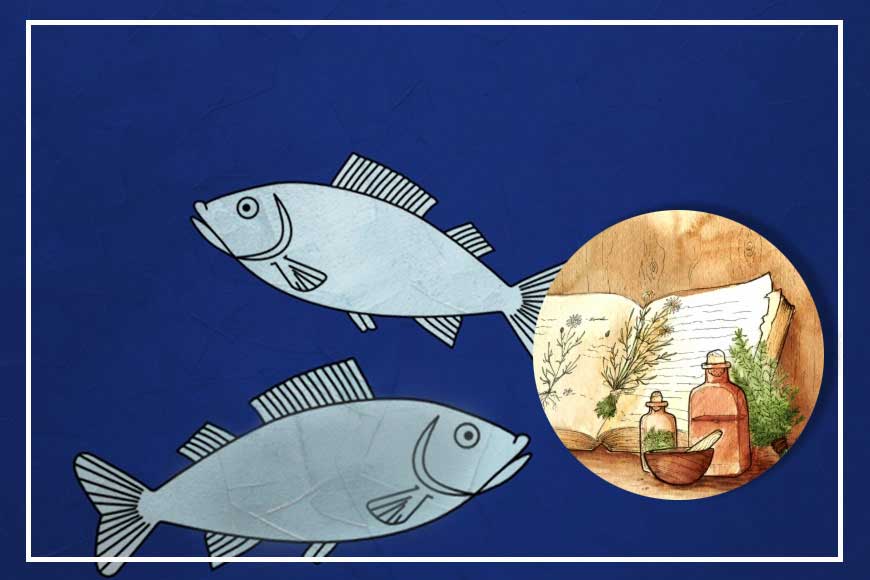Losing Bengal’s indigenous fishes & medicinal herbs due to hybridization

The fine yellow rounded Bele fish eggs deep fried with warm rice on a rainy afternoon just after school, well, I still cannot forget that memory. But even a few years back, despite searching the best fish markets of Kolkata, I could not lay hands on Bele, an indigenous fish of Bengal that was so abundant in rural areas specially during monsoon months. Same with fishes like Bamash, Tatkini, Kajli, Batashi, Kalbosh, Chapila, Khailsha and many more. The markets are today flooded with so many new varieties, all result of hybridization, fishes that are big and said to be very nutritious!
However I do doubt, because all my childhood had heard from dad and my teachers that small pond fishes of Bengal are best for the brain development in children as they are rich in phosphorus and other minerals, let alone the protein. Hence no wonder, one would almost chew the soft bones of a small fish including their skulls and left almost nothing back on the plate. I had nicknamed my husband a cat, for his proficiency in eating ‘whole’ small fishes at a go, leaving behind nothing at all. Yes, these fishes were part of our monsoon meals when rivers and ponds would be flooded and even the ‘para’ anglers would sit on the banks of the overflowing lakes in the middle of our urban neighbourhood, some even with gymchas trying to catch any small fish that would pop up from the flooded lanes.
But no more. Out of the 295 varieties of Bengal’s indigenous fishes, only 90 are found now and many of those 90, will soon vanish too. In an age when we talk of bulk, and not of quality, when we are more satisfied with flesh and not taste, no wonder, Bengal’s fishermen too were tempted for instant profits, introducing many fish breeds from South East Asian countries that are more fleshy and less in bones. Not just that, these naturally bred fishes died a slow death due to excessive use of fertilisers in the fields that mixed in the canals where they survived primarily. And the invasion of new varieties of fishes, many of which took these smaller ones as their prey. With the water levels going down, thanks to erratic rains, flood and monsoons, many varieties simply were wiped out and our children will probably never know the taste of a Kalbosh or a Batashi. Introducing hybrid varieties helped in putting the final death nail.
The bio-diversity is essential for any ecosystem. Even in religious scriptures like Vedas, in Bhagavad Gita, we get references of Chakra, which actually means the ecological balance of the universe and various ecosystems. Constant experimenting with them, decreases that diversity that had been established by natural selection. Yes, we love playing with nature. Humans feel they can control a power that is billions of years older to them. Take for example medicinal herbs of Bengal that were used for the best Ayurvedic treatments even during the British rule.
Today, when COVID-19 wreaks havoc across the globe and many turn back to building the immunity through Ayurveda, one remembers herbal plants like Datura innoxia Dioscorea alata, Eclipta alba, Jatropha curcus , Leonurus sibiricus, Rauvolfia serpentina, Scoparia dulcis, Solanum indicum and many more that were regularly used to extract the best of Ayurvedic medicines. But where are they now? Other than a few that are specially farmed, will you find them in individual gardens and growing in the villages of Bengal? Well no. The herbs that had sustained millions of locals through different pandemics have also got lost over decades, due to apathy, lack of breeding special plants, change in weather and lack of knowledge of Bengal’s ancient medicines.
Recently IUCN records the higher rate of plant species extinction which is a real threat for the survival of humanity in near future and this type of extinction speaks of loss of genetic line of one resource which is dangerous. If parental stock of genetic uniqueness disappears then any setback in the structure of the resources will create irreparable problems. And yes, there exists a Biological Diversity Act for India that is said to control access to all genetic resources of the country. May be that only exists in paper and ink. Unless we stop the over exploitation of nature through urbanization, and return to our roots, our rural lineage and respect the powers of the Universe and Nature, most species of this world will be lost. Humans can rule other humans, they can destroy nations and lives with a push of a war button, but they will themselves get lost if the indigenous ecological balance of a niche area is tampered with. I still dream of Darwin’s Galapagos Islands, where rare species still survive, far from human entrenchment. Only if my Bengal could have such an island protecting the lost species far from our glare. May be then my son too would have got the taste of that wonderful yellow, soft bele eggs that still melt in my mouth --- only in dreams.
(Saheli Mitra did her higher studies in Environmental Biology and runs her own Nature group called To Trees with Love)









